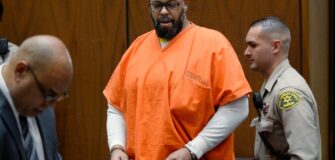Black Mother Crystal Mason’s Illegal Voting Conviction Overturned
Share

In a dramatic turn of events, Crystal Mason’s who faced years in prison, a resident of Fort Worth, Texas, has been cleared of an illegal voting conviction.
This verdict comes as a relief for Mason, who was facing a daunting five-year prison term.
The decision, handed down by Judge Wade Birdwell, hinged on the prosecution’s failure to present compelling evidence that Mason was aware of her voting ineligibility during the 2016 election, as reported by NPR.
Reacting to her acquittal, Crystal Mason, a Black grandmother, expressed immense joy, stating,
“I am overjoyed to see my faith rewarded today.” She has been a vocal advocate for voting rights, vowing to continue fighting to prevent others from enduring similar hardships.
Case Background: Crystal Mason’s Ordeal
Crystal Mason’s ordeal, spanning over six years, has been characterized as a political maneuver targeting minority voting rights, highlighted by the ACLU of Texas as a significant victory.
The case has attracted widespread attention, drawing criticism toward Texas’ strict stance on alleged illegal voting.
Attorney General Ken Paxton’s relentless efforts to tighten election regulations have sparked concerns about disenfranchising minority voters and those inadvertently breaching voting laws.
Crystal Mason’s situation, wherein she voted while under supervised release from prison for federal tax evasion charges, has been portrayed as a complex scenario driven by familial encouragement and misunderstanding regarding her voting eligibility.
Alison Grinter Allen, Crystal Mason’s defense attorney, condemned the conviction as unjust, emphasizing the damage inflicted by what she termed as a “vanity project” by Texas political leaders.
Allen underscored the profound impact of political prosecutions on eroding public confidence in the electoral process, describing the harm done to Mason and her family as immeasurable.
The outcome of Mason’s case not only serves as a personal victory but also underscores broader issues surrounding voting rights and the legal complexities of electoral participation.
As the nation grapples with ensuring equitable access to the ballot box, Mason’s story stands as a poignant reminder of the challenges faced by marginalized communities in exercising their fundamental rights.





















Can you be more specific about the content of your article? After reading it, I still have some doubts. Hope you can help me.